|
Genres, Themes, Actors, and Directors:
- Flashback Films
- Joan Fontaine Films
- Louis Jourdan Films
- Max Ophuls Films
- Musicians
- Obsessive Love
- Star-Crossed Lovers
- Womanizers
Response to Peary’s Review:
Peary asserts that this “exquisite film” — a “dream romance set in 19th-century Vienna” — was “Max Ophuls’s finest American film”, and that it’s a “unique, beautifully realized picture” with a “lovely flow to it”. He lists it as one of the Best Movies of the Year in his Alternate Oscars, where he also names Fontaine as Best Actress. In Alternate Oscars, he writes that while “at first glance [her character, Lisa] seems… weak and controlled by a man”, she’s not only “sweet, polite, humble, and selfless” but “projects… underlying strength, determination, and confidence”, and “has no need to feel debased”. Indeed, Lisa is a fascinating if infuriating female protagonist: while we admire her tenacity and willingness to follow her heart, it’s painful to see her literally giving away her life to someone who can’t recognize her devotion.

Jourdan, meanwhile, plays his role as a talented charmer perfectly, and is unexpectedly sympathetic: Fontaine “should” know better than to maintain lifelong devotion to a known womanizer, and she should have told him years earlier about his son!). Most memorable of all, however, is Ophuls’ fine direction (including many of his “trademarked camera pans”), with each scene perfectly realized, and many notable moments amidst “lush music, elegant settings, and romantic dialogue”.
Redeeming Qualities and Moments:
- Joan Fontaine as Lisa

- Louis Jourdan as Stefan Brand
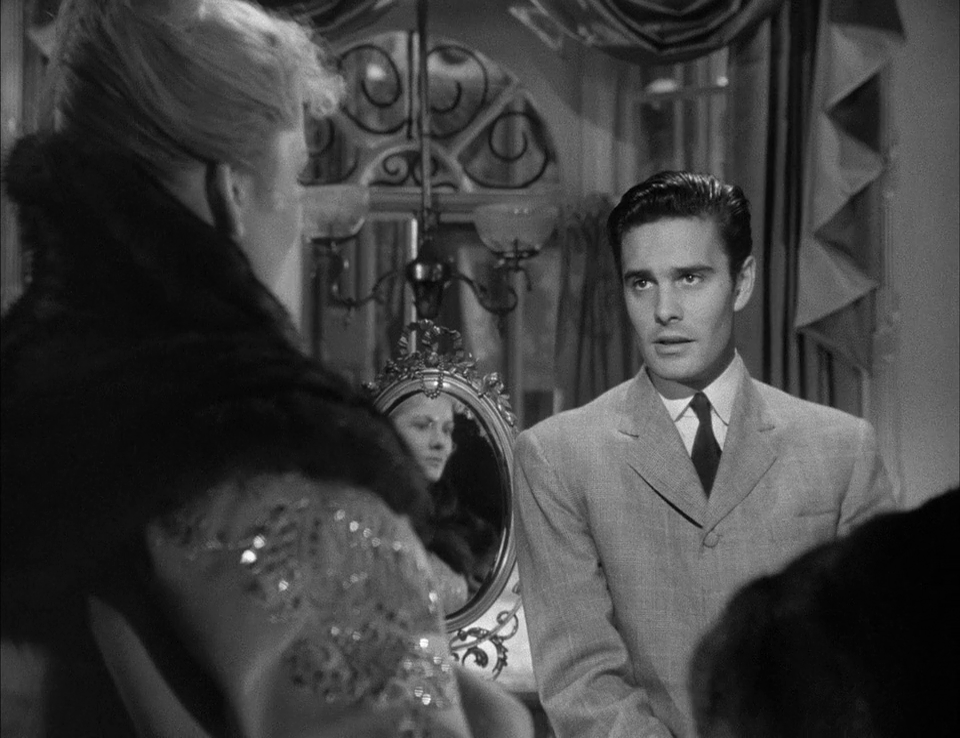
- Many memorable scenes
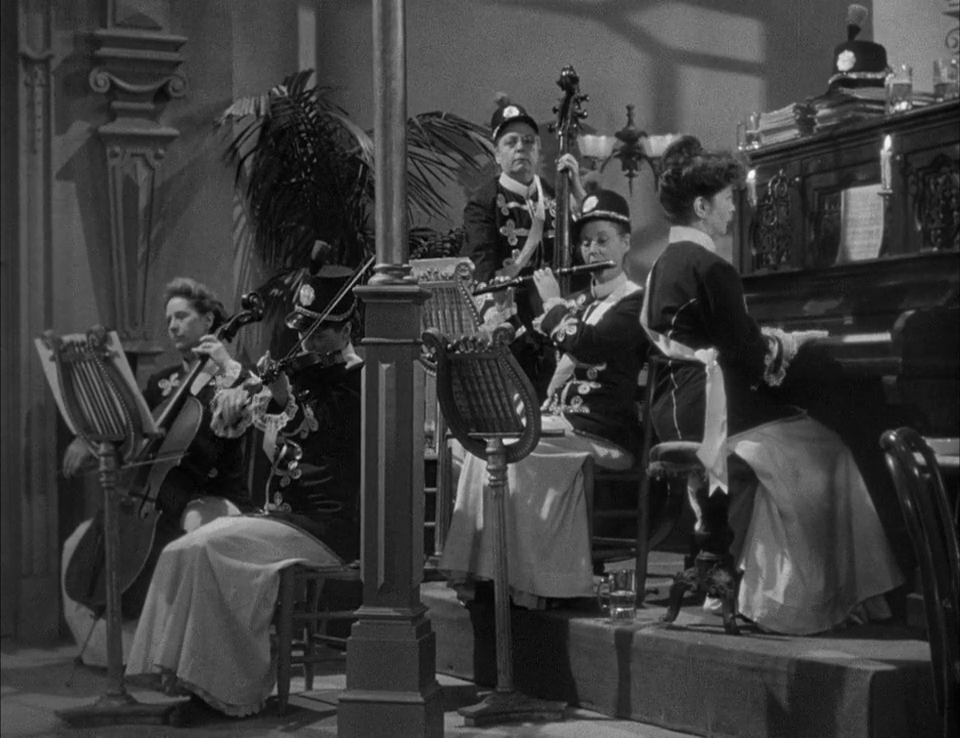
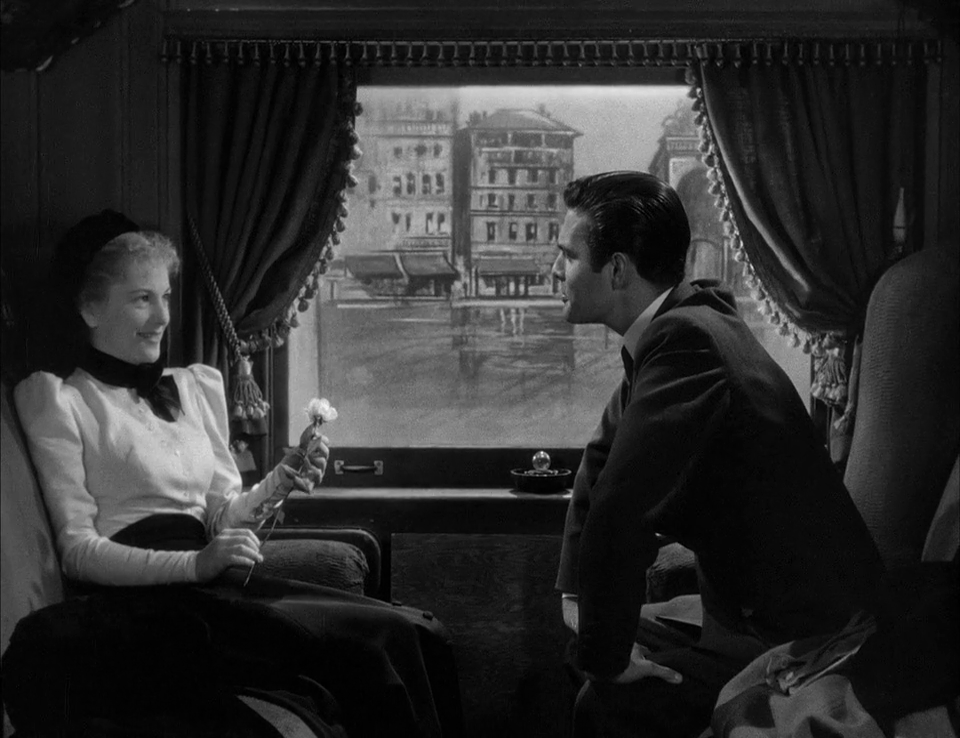
- Franz Planer’s luminous cinematography
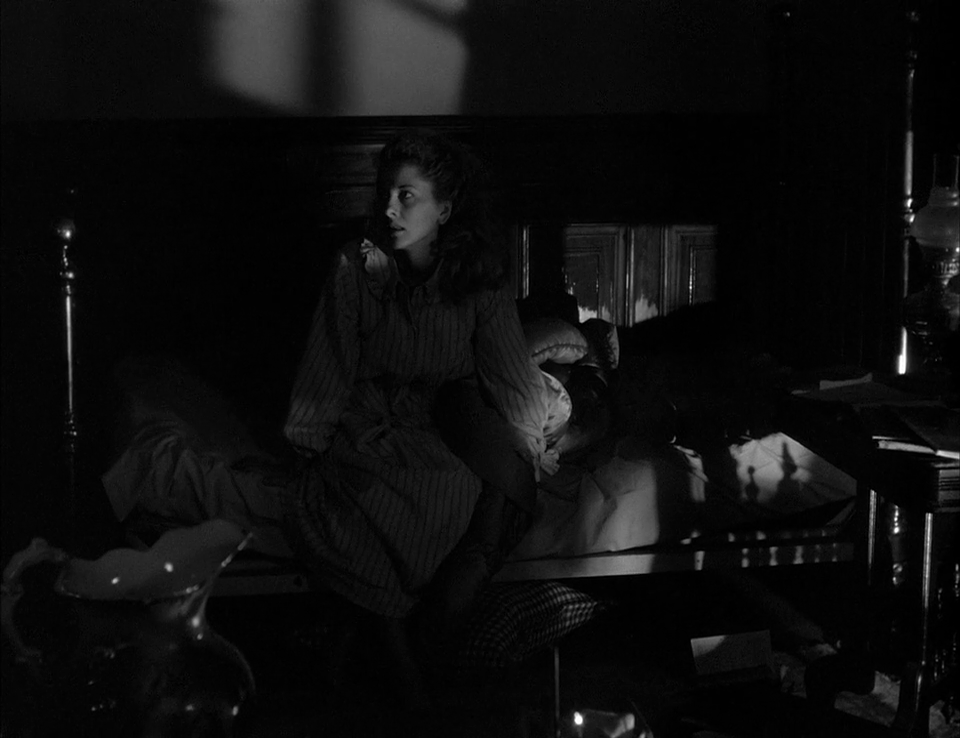
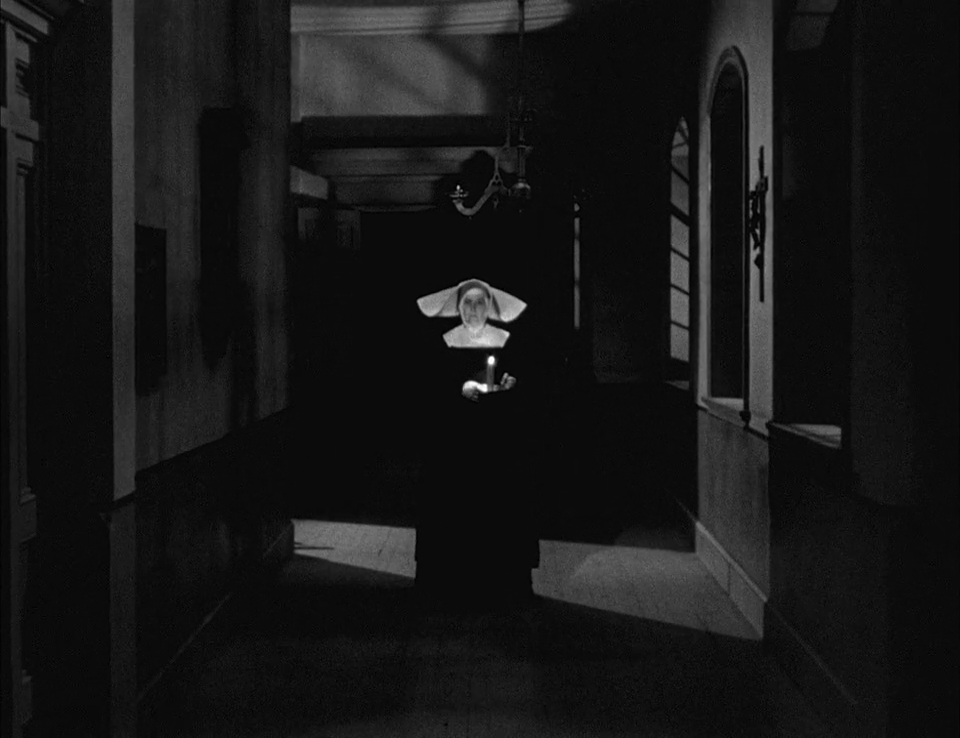
Must See?
Yes, once, as a tragic classic.
Categories
- Genuine Classic
- Important Director
- Noteworthy Performance(s)
(Listed in 1001 Movies You Must See Before You Die)
Links:
|
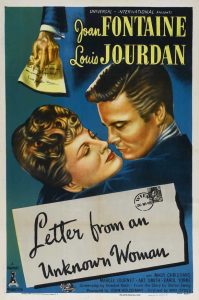







2 thoughts on “Letter From an Unknown Woman (1948)”
Not must-see. Ultimately a tiresome ‘woman’s picture’.
I’d seen this before and more or less felt the same way then.
First, there is the problem of the ‘letter’ device. Fontaine’s character narrates the story. We soon learn that the *entire story* is written in that letter…and it isn’t even until long into the story that it’s revealed who’s writing. Yes, of course, the title tells us that the woman is supposed to be “unknown” but all of this (and, yes, agreed, including news of the child) is coming way too late: the letter being, in fact, what amounts to a novel is more than a little silly. (Besides, the woman has known the guy for years – why the long pretense about it?)
Next, there’s the problem of Fontaine. I’ll admit to a personal bias – not an actor I’m all that fond of, since she doesn’t seem to have much range and there is a sameness to most of her performances.
But here it’s more than that. From the start, it’s tricky to play a role in which the character must age over time. It’s not impossible and, to an extent, an audience will suspend disbelief. But Fontaine – at 30 – is barely believable as a young girl.
An hour into the film, she has aged into something that plays better but the damage has already been done, so being pulled in as an audience (at least for me) is not much of an option. On top of which, although I sense a lot of ‘acting’, I don’t sense a lot of sincerity in Fontaine’s relationship with Jourdan, or her child.
Plus…a lot of the dialogue is way too precious, making it that much more obvious that the main characters have absolutely nothing in common but vague desire.
I don’t much like this film and don’t want to watch it again — but for me personally, it falls into the category of movies I would feel misinformed “not having seen” as a film fanatic.